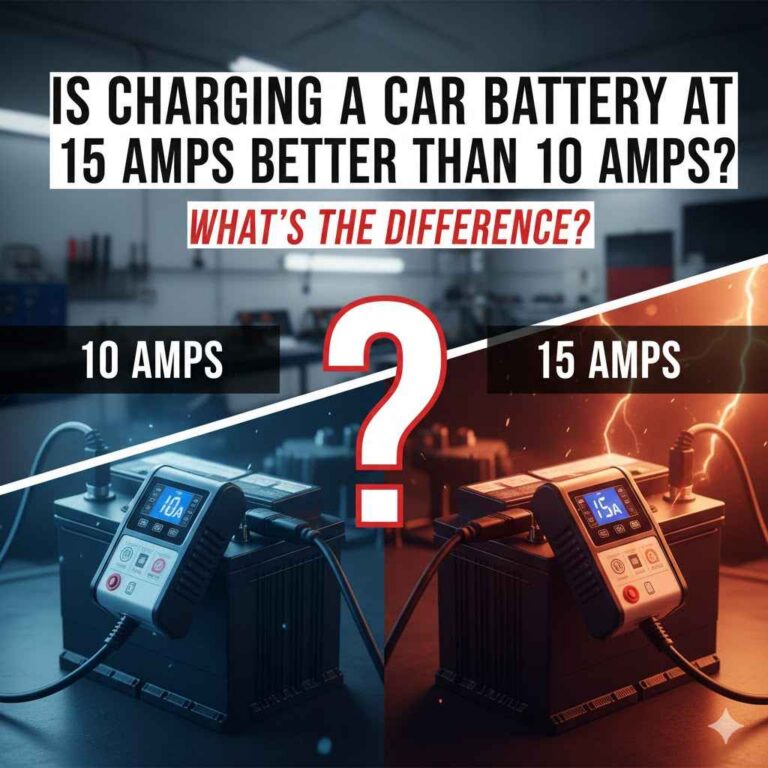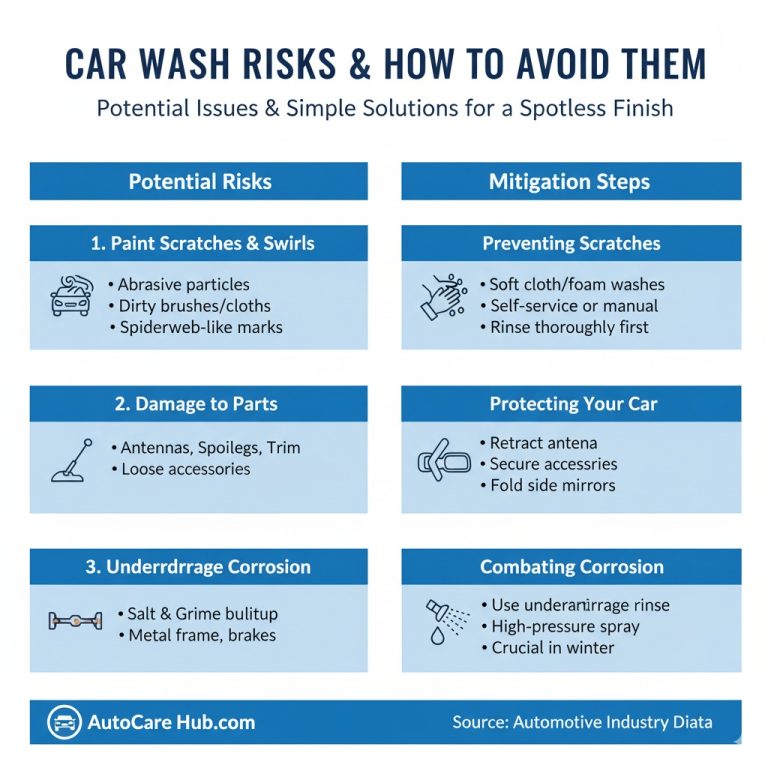Does Returning Car Affect Credit? Unveil the Impact!
Returning a car before fully paying it off, also known as a voluntary surrender or repossession, can have a significantly negative impact on your credit scores, making it a last resort option. It is considered derogatory and can result in a negative mark on your credit report.
Lenders often view voluntary repossession the same as involuntary repossession, leading to potential consequences for your credit. Additionally, if you return the car to the lender, they will likely sell it and use the proceeds to pay off your remaining loan balance.
However, selling a financed car to a private buyer or dealership usually does not harm your credit, unless there is negative equity involved. It may require refinancing or taking out a personal loan to cover the difference between the car’s value and the remaining loan amount.
Introduction To Credit Scores And Car Financing
Returning a car before it’s fully paid off can negatively impact your credit score. Known as a voluntary surrender or repossession, this action is considered derogatory and can have a substantial negative effect on your credit. It’s important to consider this as a last resort option to protect your credit.
| Does Returning Car Affect Credit |
|---|
Basics Of Credit ScoringReturning your car to the lender before you have finished paying it off is known as a voluntary surrender or voluntary repossession. From a credit perspective, this is considered derogatory and will have a significantly negative impact on your credit scores, so it should be a last resort. Many people consider voluntary repossession to protect their credit score, but unfortunately, giving your car back to the lender is unlikely to protect your credit. Lenders often view voluntary repossession the same as involuntary repossession, resulting in a negative mark on your credit report. |
The Role Of Auto Loans In Credit HistoryIf you return the car to the lender, they will likely sell it and apply the proceeds to your car loan balance after deducting the costs of the sale and certain fees. Selling a financed car to a private buyer or dealership usually does not impact your credit. However, if you have negative equity, you may need to refinance your auto loan or take out a personal loan to cover the difference between your car’s value and the remaining loan amount. |
Voluntary Surrender Explained
Returning your car to the lender before you are finished paying it off is called a voluntary surrender or voluntary repossession. In terms of your credit, a voluntary surrender is considered derogatory and will have a substantially negative impact on your scores, so it should be a last resort. Many lenders consider a voluntary repossession the same as an involuntary repossession, leading to a negative mark on your credit report. If you return the car to the lender, the lender will likely sell it and apply the proceeds of the sale to your car loan balance, after reimbursing itself for the costs of sale and certain fees.
Credit Implications Of Returning A Car
Returning a car before paying it off, known as voluntary repossession, can significantly impact your credit score. Lenders often view it as a negative event, similar to involuntary repossession, which can result in a derogatory mark on your credit report.
It’s crucial to consider all options before opting for voluntary repossession to minimize the impact on your credit.
Alternatives To Car Return
Returning a car before completing payments can have a negative impact on your credit. It is considered derogatory and may lead to a substantially negative effect on your credit scores. Voluntary surrender or repossession can harm your credit and should be a last resort. Selling your vehicle privately or considering refinancing options are alternatives to car return. When selling a financed car, negative equity may require refinancing the auto loan or taking out a personal loan to cover the difference between the car’s value and the remaining loan amount.
Understanding Negative Equity
Returning a car can have a significant impact on your credit. Voluntary surrender or voluntary repossession are considered derogatory and will substantially negatively impact your credit scores. The lender will likely sell the car and apply the proceeds to your car loan balance, but it may not fully cover the amount owed, leaving you with negative equity.
Consequences Of Negative Equity
Returning a car with negative equity can result in the remaining balance on the loan, even after the car is sold, leading to financial burden and potentially damaging your credit further.
Dealing With Negative Equity
If you have negative equity, you might need to consider options such as refinancing your auto loan or taking out a personal loan to cover the difference between your car’s value and what’s left on your loan.
Steps To Minimize Credit Damage
Returning a car before paying it off, known as a voluntary surrender or repossession, can have a significantly negative impact on your credit. Lenders consider this as a derogatory action, similar to an involuntary repossession, and it can result in a negative mark on your credit report.
It is advisable to explore other options before resorting to returning a financed car.
| Steps to Minimize Credit Damage: |
| – Avoid returning your car to the lender before exhausting all other options. |
| – Consider negotiating with lenders to adjust your payment plan or interest rate. |
| – Create a strategic financial plan to manage your debt and payments. |
Navigating Car Return And Credit Repair
Returning a car before paying off the loan can have a negative impact on your credit score. Voluntary repossession or surrendering the car to the lender is considered derogatory and can lead to a negative mark on your credit report, which should be a last resort.
Selling the car back to the dealership or a private buyer is a better option, but if you have negative equity, you might need to refinance your auto loan or take out a personal loan to cover the difference.
| Does returning car affect credit? |
| Navigating Car Return and Credit Repair |
| Rebuilding Credit Post Car Return |
| Returning a car to the lender before paying off the loan is known as voluntary surrender or repossession. It is considered derogatory and will negatively impact your credit score, making it a last resort option. If you return the car, the lender will sell it and use the proceeds to pay off the loan balance. If you have negative equity, selling the car to a private buyer or dealership won’t hurt your credit, but you may need to refinance the loan or take a personal loan to cover the difference. Professional credit counseling is a good option for rebuilding credit post-car return. However, voluntary surrenders may not look as bad on a credit report as a repossession, so they may be a better option if offered. |
Legal And Financial Advice
Returning a car can have significant impact on your credit. A voluntary surrender or repossession is considered derogatory, leading to a substantially negative mark on your credit report. Lenders often treat voluntary repossession the same as involuntary repossession, resulting in a negative impact on your credit score.
Returning the car to the lender may lead to the sale of the vehicle, with the proceeds applied to your car loan balance. If you are unable to afford your car payments and consider returning the car, it’s essential to seek legal counsel and financial advice. Selling a financed car to a private buyer or dealership is unlikely to hurt your credit, but negative equity may require refinancing or taking out a personal loan.
Conclusion: Making An Informed Decision
Returning a car can have a significant impact on your credit. A voluntary surrender or repossession will be considered derogatory and will negatively affect your credit scores. The lender will likely sell the car and apply the proceeds to your loan balance. If you have negative equity, selling the car to a private buyer or dealership might not hurt your credit, but it could necessitate refinancing or taking out a personal loan. While voluntary surrenders may not appear as negative as repossessions on a credit report, they should still be a last resort. It’s important to carefully weigh the consequences and consider future financial implications before making a decision.
Conclusion
Returning a car before you have finished paying it off can have a negative impact on your credit score. Voluntarily surrendering the car to the lender is considered derogatory and may lead to a negative mark on your credit report, which can affect your ability to get loans or credit in the future.
It’s important to consider all other options before resorting to a voluntary surrender and to work with your lender to find a solution that works for both parties.






